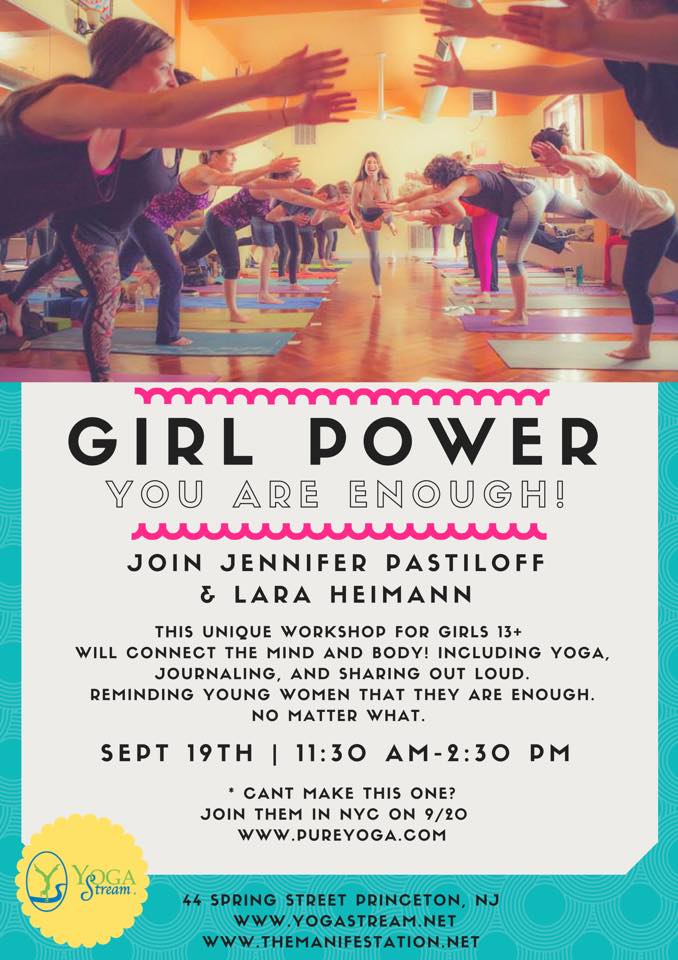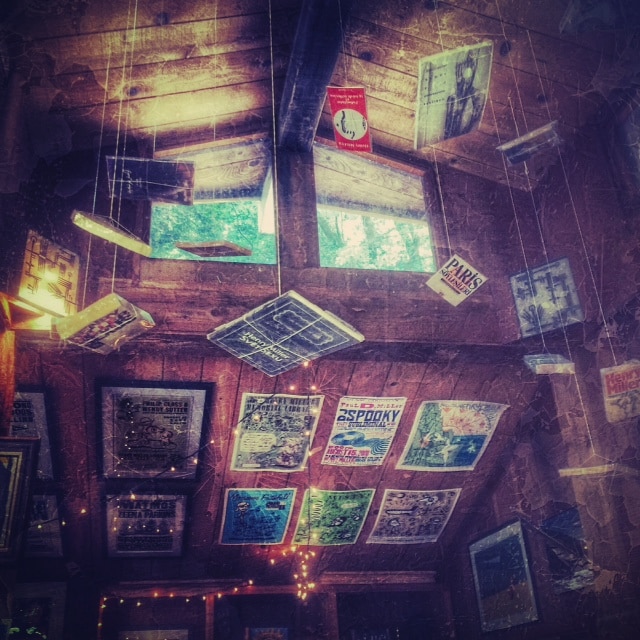By Hillary Kaylor
“What shoe size are you?”
This is how she hired me. At twenty-three, I was looking for an identity, and found it by becoming the assistant to the publisher of the most coveted foodie magazine in the world. A magazine glamorous in a gleaming midtown office building over a hundred years old that used to house carnival acts in old New York at the turn of the century. The place was wild with beaming chefs’ events and exclusive parties and in its office on the 9th floor, multiple test kitchens roasted whole chickens, prepared six different crusted pies for the November issue in the cold spring months, cinnamon-spiked hot chocolate in July, all manners of honeyed fruits and roasted vegetables, and next to our own wine-tasting room, a nearby counterspace where a bounty of fancy boutique packaged cookies and tins of toffee stood unscrewed and slashed for testing. It was a gate to a heaven of kinds.
As soon as I said 7 ½, she went over to the sleek metal locker. As she slid it to the side, I held my breath.
The shoes. Oh, the shoes!
Prada. Dior. Chanel peep toes. Sky-high wedges by Sergio Rossi. Leather and suede, silk and satin, all colors and styles. There were shelves and shelves of them. All size seven and a half.
“Yes.” I nearly shouted when she offered me the job. I would become like her. I would be queen of New York—gorgeous, rich, important, and well fed. Just like her. I could be someone.
The most beloved pair of shoes she gave me in the years that I worked as her assistant, was zebra pony skin pumps with a knife-sharp toe and an un-sensible heel.
They were also the shoes that I wore to her funeral.
Working for her was complicated, though we formed a close relationship from an intense routine. She was organized and put-together and I fell in line. Because everyone knew her, everyone had to know me, and it gave me purpose. I was important enough to run someone else’s life, and I rose to the occasion in a way I didn’t in my own. I filled her fridge with glass-bottled organic milk while the cheap stuff curdled in mine. When she needed her designer bags to be curried to the high- end vintage shop, or when she needed a personal trip booked door to door to Hong Kong, and I could deliver, the world changed. It seemed conquerable.
Each morning I shrugged out of my boyfriend’s arms early to pick up the morning papers and arrive at the office. Then, I cut out the front-page news, anything business-related, and the fashion sections. Once the sheets were cut and pinned, I ordered her morning fruit shake: strawberries, de-seeded black berries, skim milk, a shot of bee pollen, blended with extra ice, served with two straws.
At 8:30 AM sharp, she would roll into the office, dressed to thrill in stilettos and a Balenciaga skirt suit, fresh from a personal session at her pilates studio, and I would stand, wearing what I thought at the time to be a particularly good knockoff Chanel jacket.
She’d eye my outfit, furrow her ash blond brows, take the papers and drink and retreat to her office, closing the door.
When she invariably complained her shake was too icy but demanded I did not remove any of the ice, I’d shove it into my lap and cup both sides of it, warming it between my stocking legs.
I continued on. I had broken through to something. It was a world of fast deadlines and style, of travel and class. Once I had to get her a new passport because hers was already full of stamps. I held it in my hands like a badge of honor as I went to the passport office. When I returned, she merely tossed the old one back at me to shred. As if it was nothing! I kept it instead in my pencil drawer for years. I wanted her world for my own. I loved her, and she loved me almost as much. She remembered everything: my birthday, my favorite color, wrote me cards, treasured my work. I went through boyfriends with a vengeance, but whenever they told me I had to choose between my job and them, I always chose her. The boys came and went. My boss and I were here to stay. Our love lasted through my twenties, as long as it took for the magazine publishing houses to begin to fold.
She began having long meetings in her office with the door closed, and then for a while, no meetings at all. A promotion was pushed upon her to assist another magazine in the company. Then she was fired. Or downsized. Or reorganized as an outside consultant. The company never said why, and I was too polite to ask.
When she walked out of the doors of her office for the last time, she said, “It’ll be an adventure!”
“I’m going to quit,” I told her. “I’m not staying without you.”
“Don’t be ridiculous,” she gathered her favored calendar: a buttery, camel-colored Tiffany book. “Anyway, you know I’m going to call you for help.” She showed me: she’d already marked up the “Hillary” days.
She called often at first. I spent months setting up her home office, reorganizing her contacts, and typing up job prospects in her living room.
Later that year, she was invited to just six of the many usual Thanksgiving cocktail parties. When Christmas came and she still hadn’t gotten a new magazine job, she was invited to none. I attended three, and lost an expensive gift bag in the cab home.
More time passed, and she called me to help her less. She never contacted to see me socially and when I asked, she was suddenly busy. She’d been hard to love in life at times, even harder to love unemployed. Her edges sharpened, her niceties became lax. She seemed bitter and angry; people whispered.
“Did you see how FAT she got?” a pretty and interminable gossip who Anna had been particularly cold to, nudged me from behind, and thrust her phone forward with the offending photo. That’s what people said about her, if they said anything at all. I’d since gotten two promotions since she left. I felt the strange pangs of survivor guilt.
Soon, her presence faded from the circle in New York that she’d valued the most, her place in pictures filled in by fresher, hungrier faces. Once it was gone, she didn’t seem to want to find another. She stopped taking my calls. I walked by her apartment on occasion on the Upper East Side, a far cry from my Williamsburg tenement, and rang the bell. She never answered.
When I was told she was found dead, I sobbed in the ladies’ room as my cashmere skirt dipped into the toilet bowl. The world was big again; dark and wild territory. That summer it seemed to rain every day, hot rain, soaking through everyone’s bright summer clothes. The city itself began to wear black.
I was furious. She had been wrong to die the way she did, I knew this for sure, and also, I had been wrong wanting to be her. I had been wrong in my need for approval, my brass ring hopes, thinking I could earn love and affection by dressing well enough and fetching enough coffee. I made a mistake. She was brilliant, she was beautiful, and she had a lovely front orchestrated in which she seemed to possess everything desired. When the job was gone, so was she. Without it she was rudderless and then sank.
Scared that I will end up the same, I flee to Cambodia to volunteer with ‘slumdog’ orphans, and in the process am nearly raped, suffer attacks by multiple monkeys, am plagued by Malaria delusions, and fall in and out of love with yet another boyfriend. What I gain is an education from the Khmer people who soldier on, even in the devastating wake of the Khmer Rouge genocide. I see orphans chose strength: teenaged ladyboys choreograph intricate dances to Beyoncé’s “Run The World (Girls)” and young girls who make a game of selling flowers in brothels while wearing Angry Bird shirts. When I leave, they present me with a cake that says “Thanks You Hallary, We Love You” and smile when I ask them how they paid for it. What hurt before now hurts in a different, duller way.
When I got back and pulled my things out of storage, I found a thank you note from long ago, when she had her eyes done and I had helped her.
“Hillary,” she sounded stern even in her cream silk pajamas. “Be careful with me.”
“I am,” I insisted, letting her hang on me as I lowered her into her plush, also-cream bed. I pulled the heavy comforter up to her bandaged chin. “Just trust me.”
“I do. I no longer have a fear of dying a bag lady, thanks to you.”
“What do you mean, bag lady?”
She smiled under her cashmere sock wrap. “I always look at women on the streets. I see them everyday huddled at the 6 train. I want to know how did you get here? How fast did it happen? Will I become one of you?”
“You’ll never become one.”
“Why’s that?”
I thought. “You plan too well?”
“That’s why I plan. I won’t be a bag lady at the end as long as you keep helping me. Perhaps some better fortune may befall me.”
When I folded the card closed, I loved her even more. The world became small again. I knew that I didn’t pick the wrong mentor, but I’d been listening to the wrong lesson. Just because I had emulated her, didn’t mean I could ever be her and not me. Or that I should. Now that she was gone, I still had to become someone and I couldn’t just borrow it this time.
Perhaps, some better misfortune could befall me, too.
Hillary Kaylor has written about her experience in Cambodia for Travel + Leisure, The Huffington Post, and a variety of philanthropic websites and organizations. She was also a finalist for Travel + Leisure’s 2013 photo contest for her picture of Khmer orphans. In addition, she has been previously published in Food & Wine magazine, New York magazine, The FADER, Gawker, and MSN.com. She is the recipient of the final Glimmer Train “Best Start” Literary Award, and is currently working on a memior about her Cambodian experiences. She can be reached online ************@***il.com” target=”_blank” rel=”noopener”>via email or followed on Instagram at @hillaryckaylor.


Featured image by Tiffany Lucero.
